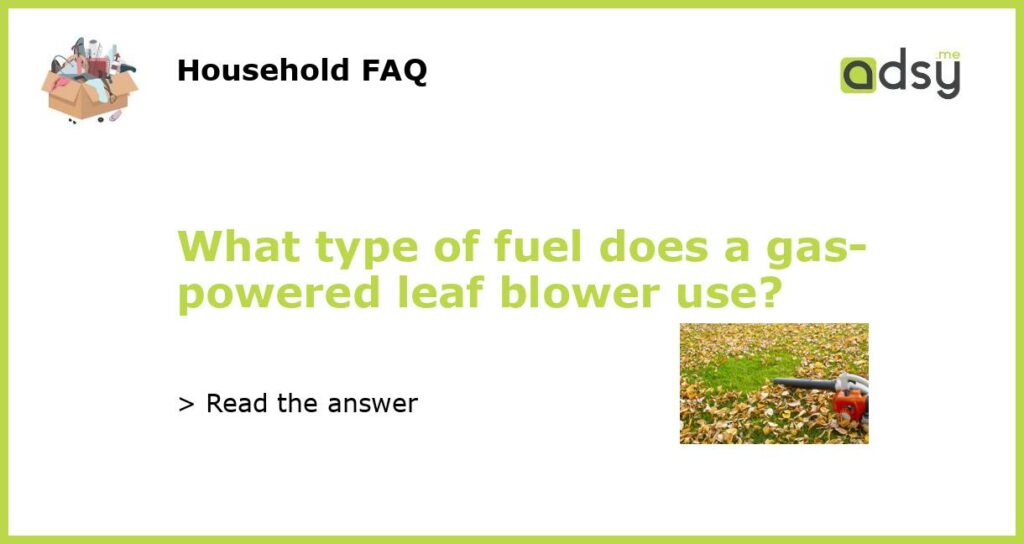Understanding the Fuel Requirements for Gas-Powered Leaf Blowers
Gas-powered leaf blowers are popular gardening tools because they deliver more power and mobility than their electric or battery-powered counterparts. However, to get the most out of these leaf blowers, you need to understand the fuel requirements to keep them running smoothly and safely. One of the most common questions people ask about gas-powered leaf blowers is what type of fuel they use.
The Basics of Gasoline-Powered Leaf Blowers
A gas-powered leaf blower runs on gasoline, which is a liquid fuel derived from crude oil. Unlike electric or battery-powered leaf blowers, gas-powered units have a two-stroke or four-stroke internal combustion engine that burns fuel to generate the energy required to move air out of the nozzle. Gasoline is a highly compressed and dense fuel that evaporates at room temperature to form a flammable gas. What this means is that you need to handle gasoline with utmost care to avoid accidents.
Selecting the Right Fuel for Your Gas-Powered Leaf Blower
While all gas-powered leaf blowers use gasoline, you need to select the right type of fuel to prevent engine damage and ensure optimal performance. Most manufacturers recommend using unleaded gasoline with a minimum octane rating of 87 (AKI). Using a lower octane fuel can cause engine knock and increase fuel consumption, leading to a shorter lifespan for your leaf blower. You should also avoid using ethanol blends containing more than 10% ethanol, as these fuels can damage the carburetor and other engine parts.
Tips for Storing and Handling Gasoline
To keep your gas-powered leaf blower running smoothly, you need to handle gasoline correctly. Always store gasoline in an approved container and in a well-ventilated area away from open flames or heat sources. Make sure the container is tightly sealed to prevent spills or evaporation. When filling your leaf blower’s fuel tank, stop as soon as you see fuel in the tank’s neck to avoid overfilling. Finally, make sure to dispose of gasoline and gasoline-soaked rags or filters safely and responsibly.
The Bottom Line
Gardeners and homeowners who rely on gas-powered leaf blowers need to understand the type of fuel their machines use. Gasoline is the standard fuel for these leaf blowers, but you need to choose the right type of fuel and handle it with care to prevent accidents, damage to your leaf blower’s engine, and lapses in performance. Always follow the manufacturer’s recommendations on fuel type, and make sure to store, handle, and dispose of gasoline correctly to ensure safe and smooth operation of your gas-powered leaf blower.






